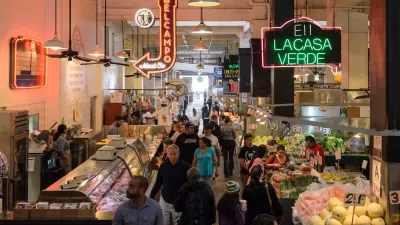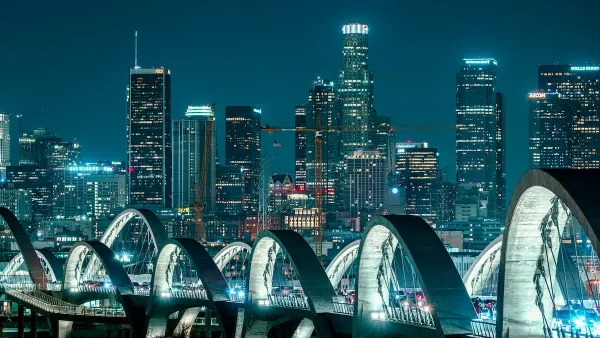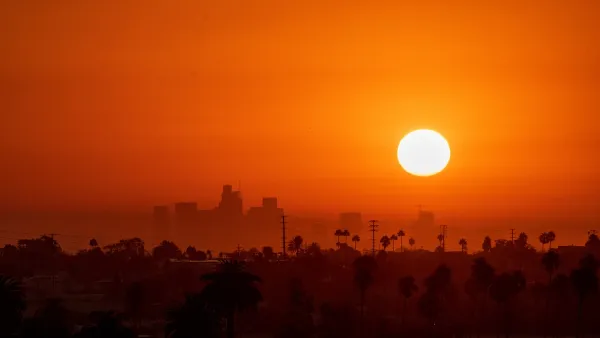The Chinese American Museum in L.A. currently features an exhibit exploring the drink’s journey from the cassava root in South America, to the tapioca balls in the Taiwanese confection, and back to the U.S. as a symbol of Asian American identity.

Boba tea or bubble tea is a tea-based drink that originated in Taiwan in the early 1980s. Taiwanese immigrants brought it to the U.S. in the 1990s, initially in California through regions like Los Angeles County, but the drink has also spread to other countries where there is a large East Asian population. Bubble tea most commonly consists of tea accompanied by chewy tapioca balls ("boba" or "pearls"), but it can be made with other toppings as well, such as grass jelly, aloe vera, red bean, or popping boba.
In this article, Janaya Williams writes about a new exhibit at the Chinese American Museum in Los Angeles called “the boba show: history, diaspora, & a third space” which explores the drink’s journey from the cassava root native to South America, to the tapioca balls in the Taiwanese confection, and back across the ocean to the U.S., where has also become a symbol of identity and culture for Asian Americans. Cal State University, Los Angeles Assistant Professor of Asian American Studies Juily Phun is the exhibit’s co-curator. She shares that boba helped young Asian Americans like her find a community in Southern California areas like the San Gabriel Valley.
Symbolically housed in the oldest and last surviving structure of Los Angeles’ original Chinatown, the Chinese American Museum embodies a cultural and physical link to the past, as well as a promising point of entry for the city’s multicultural future. Opened in December 2003 after 20 years of dedicated community and civic leadership and support, CAM’s presence at El Pueblo de Los Angeles Historical Monument—a 44-acre public park honored as Los Angeles’ “birthplace” and the site of its original Chinatown—reflects the vibrant development of an immigrant history that began over 150 years ago when the first major Chinese settlement was documented in Los Angeles.
FULL STORY: Communi-tea: Boba is more than a drink at SoCal art show

Planetizen Federal Action Tracker
A weekly monitor of how Trump’s orders and actions are impacting planners and planning in America.

Congressman Proposes Bill to Rename DC Metro “Trump Train”
The Make Autorail Great Again Act would withhold federal funding to the system until the Washington Metropolitan Area Transit Authority (WMATA), rebrands as the Washington Metropolitan Authority for Greater Access (WMAGA).

The Simple Legislative Tool Transforming Vacant Downtowns
In California, Michigan and Georgia, an easy win is bringing dollars — and delight — back to city centers.

Supporting Cycling Takes More Than Just Bike Lanes
Safe, protected bike lanes are a key part of a city’s bike infrastructure — but secure parking, e-bike charging, and other amenities can also influence people’s shift to cycling.

Judge Blocks Anti-DEI Rules for Transportation, Housing Grants
A second injunction blocks the Trump administration from enforcing new regulations for federal funding.

Unhoused People in San Jose Could Face Arrest if They Refuse Shelter
A policy proposed by the city’s mayor would give law enforcement the option to arrest homeless residents if they refuse three offers of housing.
Urban Design for Planners 1: Software Tools
This six-course series explores essential urban design concepts using open source software and equips planners with the tools they need to participate fully in the urban design process.
Planning for Universal Design
Learn the tools for implementing Universal Design in planning regulations.
Smith Gee Studio
City of Charlotte
City of Camden Redevelopment Agency
City of Astoria
Transportation Research & Education Center (TREC) at Portland State University
US High Speed Rail Association
City of Camden Redevelopment Agency
Municipality of Princeton (NJ)





























